THERE are many Nigerians who never believe that we are at war as a nation. Boko Haram, for all its savage flares, rings abstract to them because they don’t know the victims: a dead relative, a maimed neighbour, an embattled home, a razed village, a limp athlete. They hear but do not fear because no gun rattles the next street, nor does a pregnant woman, blood on her face, run half-blind across their terrace.
But for those who live in Konduga, where buildings lit up recently like a Christmas bonfire with body bags as harvest, war is real. Ditto to Bama where farmers only thrived when they put fear and flight ahead of planting a grain of wheat.
It reminds one of a history course at the university called The History of the Far East. I asked myself, would those who woke up, fished and died in Cambodia or Japan regard their homes as far? In political science, they regard some wars as low intensity conflict and others as high intensity conflict. If you lose your only home in a hamlet after a scuffle, it cannot make headlines. But it is your own world war three.
I wonder if, somehow, the war in Borno State is not sliding into a low intensity war in the eyes of those who should win it. As one who has been in that part of the country quite a few times, it gives one cause to worry. Barely four years ago, Lai Mohammed thumped his chest that the war was over and the Buhari administration had turned a national disaster into a fest.
Today it is a different story, and it has been so for a while. The greatest tragedy is that the nightmare is becoming a routine. The goons attack a village, people die. We mourn. We move on. Our soldier rolls back a horde of attackers; we celebrate as though the war is over. We move on. Meanwhile, the nightmare aches.
The information minister shies away from the topic. Even the chief of army staff goofed about the army’s morale as though it was the fault of his soldiers’ faintness of heart. We cannot underestimate what this does to governance. No one understands this more than the man who is now in charge of running the state. Governor Babagana Zulum was, as commissioner, in charge of reconstructing the state when the army seemed to have retained a grip on the territories. I called him the Marshall Plan commissioner after the United States general who rebuilt Europe from its world war ruins.
Under the former governor, Kashim Shettima, we saw quite a few episodes of conflict between the centre and state. The governor at that time cried that the Nigerian army was inferior to the insurgents. They were better armed, better organised, and better motivated. At a point, as many will recall, the ragtag mullahs had taken over most of the state. And they loomed within a few miles of the state house. We were on the verge of a first in this country, where a military coup would involve men defiling the Koran, men overthrowing the name of patriotism, and men who did not love their neighbours or pretended to care. Jonathan had no answers and we called him clueless.
The governor enjoyed a breath of peaceful breadth when the insurgent retreated into a silence. And with Zulum, he embarked a tremendous infrastructure work, with education, agriculture and a slew of many accomplishments.
But even towards the last embers of Shettima’s reign, the insurgents devised a strategy. They came first with “innocuous” girls blowing themselves up in markets and mosques, and they started to regroup and recruit and excavate resources from shadowy places. Suddenly they built redoubts of terror in bushes and across the borders.
Enter Zulum, and the war has taken up notches. It must be frustrating to him that he has toured the 27 local governments, and has embarked on an avalanche of activities since May 29. Yet for Zulum, how did it feel that in a feisty place like Konduga where he has constructed a school, distributed food items in IDP camps, built healthcare and housing units and turned the dry lands into watery boreholes. Then the people had to kneel under the fires of insurgents who laid waste some of the gains. In Bama, he has rehabilitated the technical college, rebuilt its bridges and excavated the Banki town. Yet we know that the goons made forays into the land.
Whether it is a prominent place like Gwoza, Chibok and Biu or relatively little known places like Ngala, Dikwa, Mafa and Bayo, the professor governor’s fingers are at play. But so is the threat of the Boko Haram army. Primary schools, hospitals, water, IDPs, et al, are getting facelifts, but the air of fear ripples in the ear.
War and development are antipodal, and it is high time that the federal government realised that the first condition to improve the welfare of the people is peace. Yet Governor Zulum, just like his predecessor, has provided funds and equipment and welfare to the army. But who is even accounting for this.
A source tells this essayist that many people in Borno believe that Borno State may be retreating to the turbulence of 2013 when the state government had to “channel energy to rebuilding more than 30,000 houses, hospitals, shopping malls, local government secretariats, police stations, palaces of traditional rulers. It seems the insurgents are trying to take us back to that era.”
Such a scenario does not only destroy, it discourages. That is the state of affairs in the first few months of Zulum’s stewardship. President Buhari, who has devoted so much treasure into this battle, should ask for the account books and audit the soldiers. So this war does not become what Obasanjo, with gleeful mischief, prophesies will last many more years. We don’t want the fulfilment of what George Orwell quipped in his novel, 1984, where it states roguishly that “War is peace.” To those who profiteer, isn’t this a war of peace, while most families faint and fail.
We don’t want this war. Neither do the soldiers. As Plato noted, “Only the dead have seen the end of a war.” We want our soldiers to see the end of this one.
Ly(i)on of the tribe
In Bayelsa, we are seeing the beginning of a temper. But for now, it is within the opposition APC, where Heineken Lokpobiri, who once was a son of the party has turned rogue with the party hierarchs. He was a minister nominated by the same group he is now warring. Biting the finger that fed him? Now Heineken will now have to battle a sober lion, growling ominously for a battle.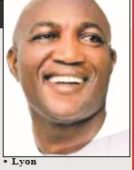
His name David Lyon, a name perceived as a double threat with Biblical implications. Lyon often interpreted as the maned beast, the lion, also is the name of one Europe’s cultural and historical cities, dating back to the warrior age of the Roman Empire. Today it sometimes competes with Paris in France. So, Lyon wants to turn Bayelsa into the city of David as the lion of the tribe.
Lokpobiri will have to do more than going to court to contest open primaries whose virtues were first sold to the nation in this column by this essayist. The next few days will determine whether Heineken can fight a ly(i)on.
You may be interested
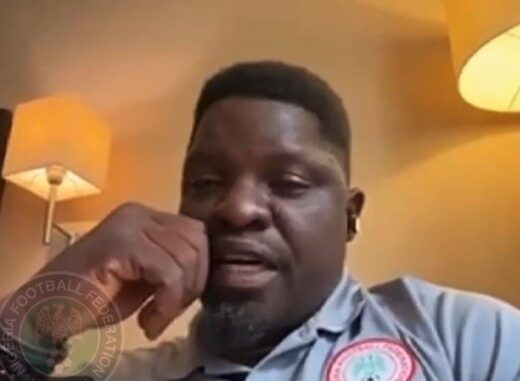
2024 CHANQ: History Not Kind To Us Against Ghana –Ogunmodede
Webby - December 24, 2024Home-based Super Eagles coach Daniel Ogunmodede says history has not been good to Nigeria when they face rivals Ghana.The home-based…

Ex-Chelsea Star Oscar Returns To Boyhood Club Sao Paulo
Webby - December 24, 2024Former Chelsea midfielder Oscar is returning to his Brazilian boyhood club Sao Paulo after 14 years, which included a long…
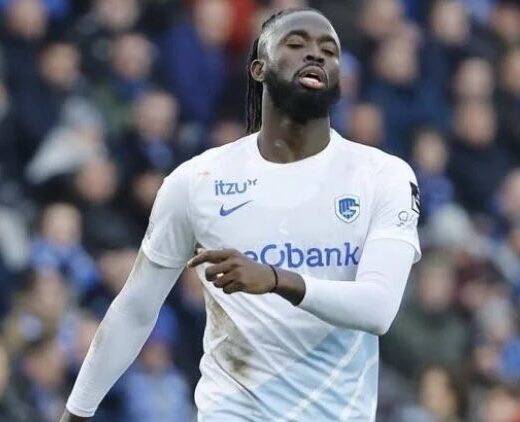
‘I’m Incredibly Proud’– Arokodare Talks Up Genk’s Unbeaten Home Streak
Webby - December 23, 2024Tolu Arokodare is full of excitement followingGenk’s historic victory over Anderlecht, reports Completesports.com.Sunday’s win at the Cegeka Arena was the…


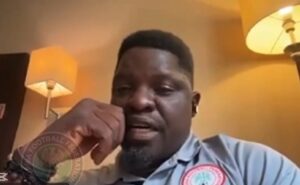




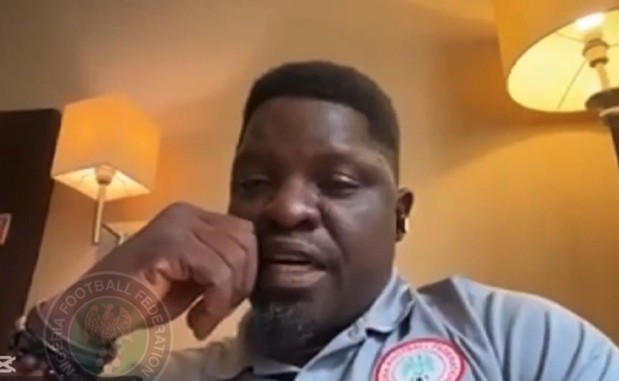
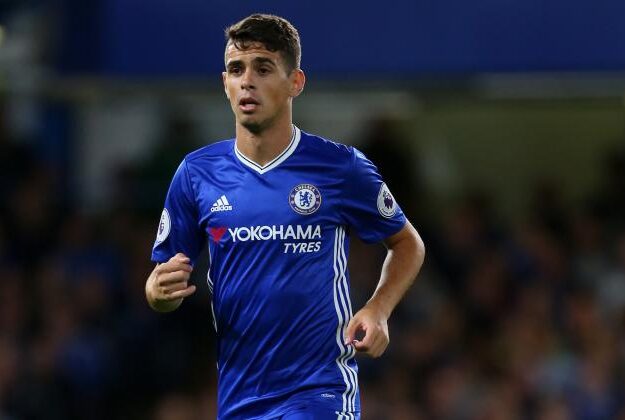
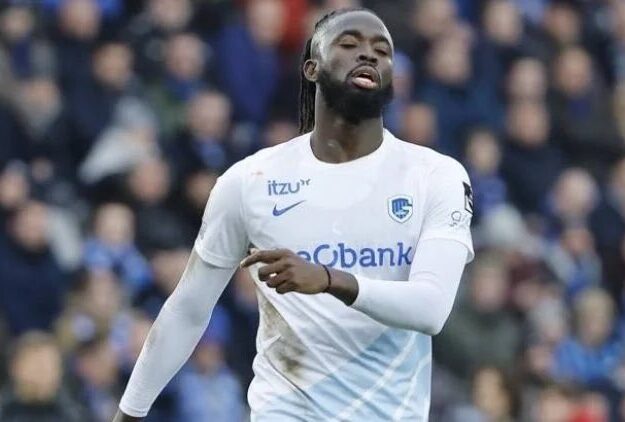








![American Pastor, David Wilson Seen Eating The Box Of Woman Who Isn’t His Wife [Video]](https://onlinenigeria.com/wp-content/uploads/2019/10/american-pastor-david-wilson-seen-eating-the-box-of-woman-who-isnt-his-wife-video-150x150.jpg)









